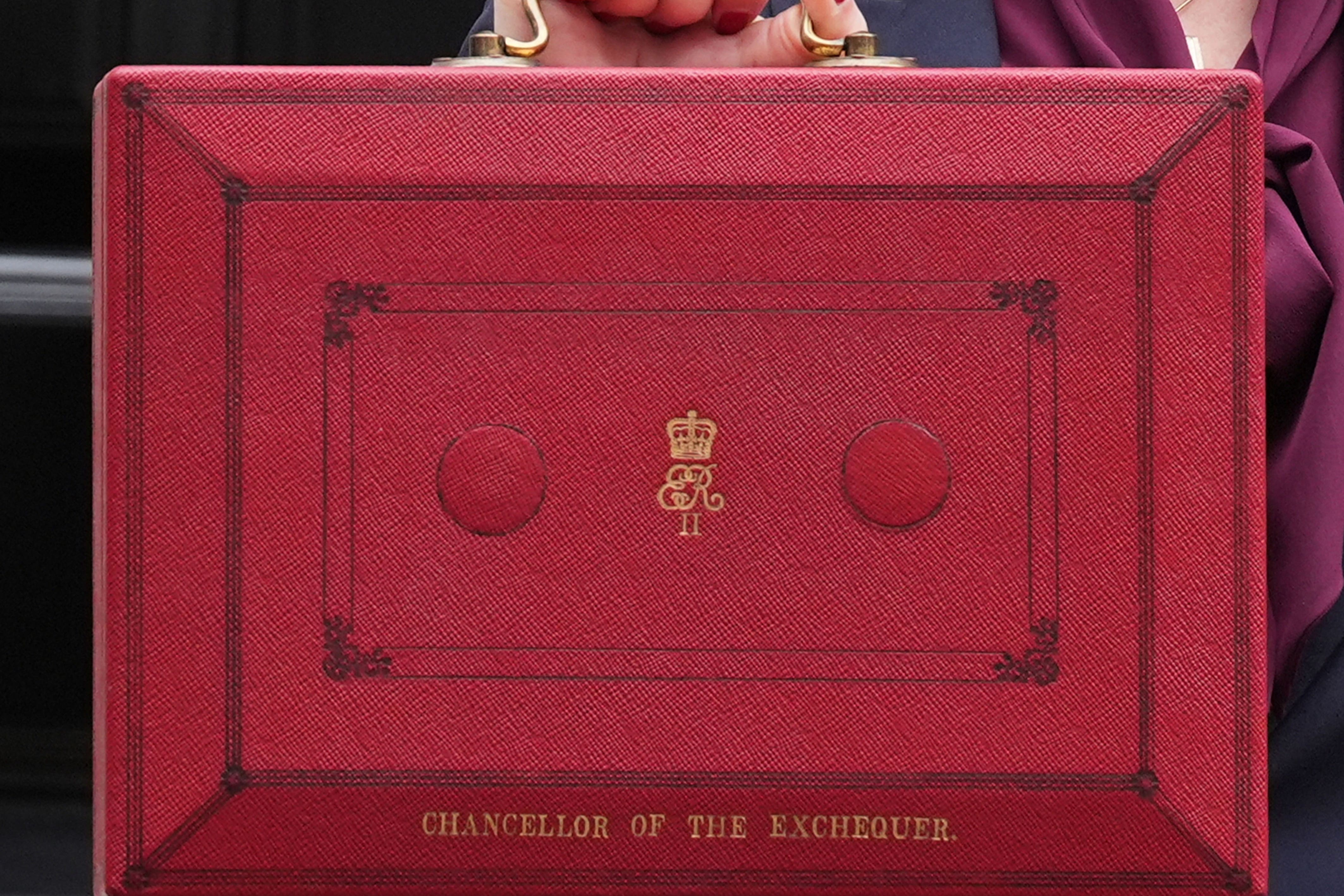Papers react to Labour’s Budget ‘gamble’
There was a mix of optimism and pessimism with the national papers’ views on Rachel Reeves’s Budget.

The nation’s papers have delivered a mixed response to Labour’s first Budget in 14 years, with Chancellor Rachel Reeves’s announcement of £40 billion a year in extra taxes coming under particularly heavy scrutiny.
Ms Reeves said Labour’s first Budget since 2010 would be a one-off to “wipe the slate clean” and provide billions in extra support for the nation’s services, including schools, hospitals, transport and housing.
However, the Office for Budget Responsibility said a £25.7 billion increase in national insurance contributions paid by employers is likely to reduce wages and lead to job losses.
The Daily Express is not a fan of the Chancellor’s strategy, dubbing the scale of unveiled tax hikes “extraordinary”.
A leading article particularly lambasts the Government’s hike in national insurance contributions paid by employers and warns the consequences for workers will be “gruesome”.
“Labour has embarked on an epic experiment with your money,” the paper says.
“For the good of us all, we hope it works.”
The Daily Telegraph is in lockstep, accusing Labour of going against its election manifesto pledges.
An editorial states: “If a first Budget is a defining moment then this one was characterised by mendacity.
“The election promise not to raise National Insurance was broken, the pledge not to fuddle the figures to allow for more borrowing was abandoned and the claim of a £22 billion ‘black hole’ was exposed as the shameless political fiction everyone knew it to be.”
Labour’s Budget “threatens stagnation”, according to The Times, which asks: “Where’s the growth?”
A leading article says the Budget represented “a familiar definition of Labour in power”, pointing to “the highest tax take on record, higher borrowing, higher spending on schools and hospitals, and a bill underwritten by employers and the asset-rich”.
The paper also accuses Labour of u-turning on its pre-election promises, writing: “Whatever she now claims, not once did Ms Reeves ever indicate that she planned to raise an additional £25 billion from higher rates of national insurance on employers.”
Conversely, the Daily Mirror calls the Budget a “bold, confident” package that “addressed the incredible damage caused by 14 years of Conservative austerity, injustice and neglect”.
The paper’s leading article highlights Ms Reeves’s “hard decision” to raise taxes “in order to provide the funding our schools and hospitals so desperately need”.
If the public does experience a tangible improvement in its services, then the 'gamble' may well pay off for Ms Reeves, in economic and political terms. If not, and the voters find the tax burden so intolerable that they contemplate a more radical approach to the size of the public sector, then Ms Reeves’s gamble will have failed, and she will have run out of excuses
It describes the decision as one which “will not be universally welcomed but it is categorically the right one”.
“Ignore the squeals of the wealthy having to pay more,” the paper says.
“The Chancellor instinctively understands that improving education, reducing waiting lists, raising wages and building more homes are not just the foundation of a fairer society, but also a more prosperous one.”
The Independent, meanwhile, calls it a “gamble”, writing the Halloween package is “as much trick as treat”.
An editorial says the Budget “was impressive in its presentation”, but adds: “Never before has a chancellor ramped up taxation by so much in peacetime, with commensurate increases in public spending and borrowing.
“If the public does experience a tangible improvement in its services, then the ‘gamble’ may well pay off for Ms Reeves, in economic and political terms.
“If not, and the voters find the tax burden so intolerable that they contemplate a more radical approach to the size of the public sector, then Ms Reeves’s gamble will have failed, and she will have run out of excuses.”
Bookmark popover
Removed from bookmarks